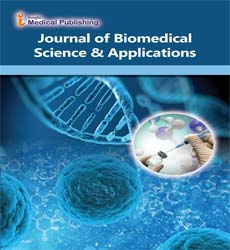A versatile CNC based platform for generating three dimensional micro vascular networks for application in Bio-MEMS and tissue engineering
Abstract
Rapid prototyping has now become an important integral part of tissue engineering and BioMEMS, which is used to develop various biomaterial based tissue scaffolds/substrates. Unlike the conventional methods, rapid prototyping is based on 2D/3D Computer Numeric Control (CNC) based systems. Nowadays the most prevailing challenge is to find an organ donor due to histocompatibility issues associated with the donated organs. Other than complete organ donation, patients with the third degree burns requires immediate skin transplant. Several remedies for severe burn patients are available in the market which is artificially derived skin grafts. Conventional methods involves solvent casting and particulate leaching, melt molding, gas foaming, freeze drying and fiber bonding etc. Steps involved in the fabrication of tissue scaffolds with the conventional methods are very lengthy and time taking and also requires expertise and experience to achieve a desired microstructure. Rapid Prototyping on the other hand requires the Computer Aided Designing (CAD) skills to fabricate a tissue scaffold and microstructures. The parameters like Porosity, scaffold morphology, scaffold topography and Bioactivity, etc. can be easily adjusted during the CAD modeling itself. We have developed a versatile 2D/3D (CNC) based build platform which can perform multiple 2D/3D(CNC) based operation like Laser based ablation/engraving, Laser based patterning, Liquid polymer patterning, milling based operations, 3D patterning on a single platform with different Biomaterials in order to fabricate 2D/3D tissue scaffolds. Fabrication process was done using different biocompatible polymers like PLA (Poly Lactic acid), PCL (Poly Caprolactone), PEG (Poly-ethylene Glycol), Collagen, and Chitosan, etc. and will be subjected to the further biological testing using different mammalian cell lines including Hepatic carcinoma cell line (HepG2), Cardiac cell line(AC16), and Adenocarcinomic human alveolar basal epithelial cells(A549).
Open Access Journals
- Aquaculture & Veterinary Science
- Chemistry & Chemical Sciences
- Clinical Sciences
- Engineering
- General Science
- Genetics & Molecular Biology
- Health Care & Nursing
- Immunology & Microbiology
- Materials Science
- Mathematics & Physics
- Medical Sciences
- Neurology & Psychiatry
- Oncology & Cancer Science
- Pharmaceutical Sciences
